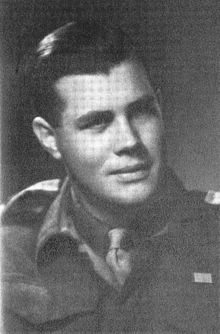Colin Eglin | |
|---|---|
 Eglin during World War II | |
| Leader of the Progressive Federal Party | |
| In office 1977–1979 | |
| Preceded by | Office established |
| Succeeded by | Frederik van Zyl Slabbert |
| In office 1986–1988 | |
| Preceded by | Frederik van Zyl Slabbert |
| Succeeded by | Zach de Beer |
| Leader of the Progressive Reform Party | |
| In office 1975–1977 | |
| Preceded by | Office established |
| Succeeded by | Office abolished |
| Leader of the Progressive Party | |
| In office 1971–1975 | |
| Preceded by | Jan Steytler |
| Succeeded by | Office abolished |
| Personal details | |
| Born | 14 April 1925 Sea Point, Cape Town, Cape Province, Union of South Africa |
| Died | 29 November 2013 (aged 88) Cape Town, Western Cape, South Africa |
| Citizenship | South African |
| Political party | Democratic Alliance (2000–2013) |
| Other political affiliations | Democratic Party (1989–2000) Progressive Federal Party (1977–1989) Progressive Reform Party (1975–1977) Progressive Party (1959–1975) United Party (before 1959) |
| Alma mater | University of Cape Town |
| Military service | |
| Allegiance | Union of South Africa |
| Branch/service | South African Defence Forces |
| Years of service | 1943–1946 |
| Battles/wars | World War II |
Colin Wells Eglin (14 April 1925 – 29 November 2013)[1] was a South African politician best known for having served as national leader of the opposition from 1977–79 and 1986–87. He represented Sea Point in the South African Parliament from 1958–61 and from 1974–2004. Described by Nelson Mandela as "one of the architects of (South Africa's) democracy", Eglin played a leading role in the drafting of the country's post-apartheid constitution.
© MMXXIII Rich X Search. We shall prevail. All rights reserved. Rich X Search
